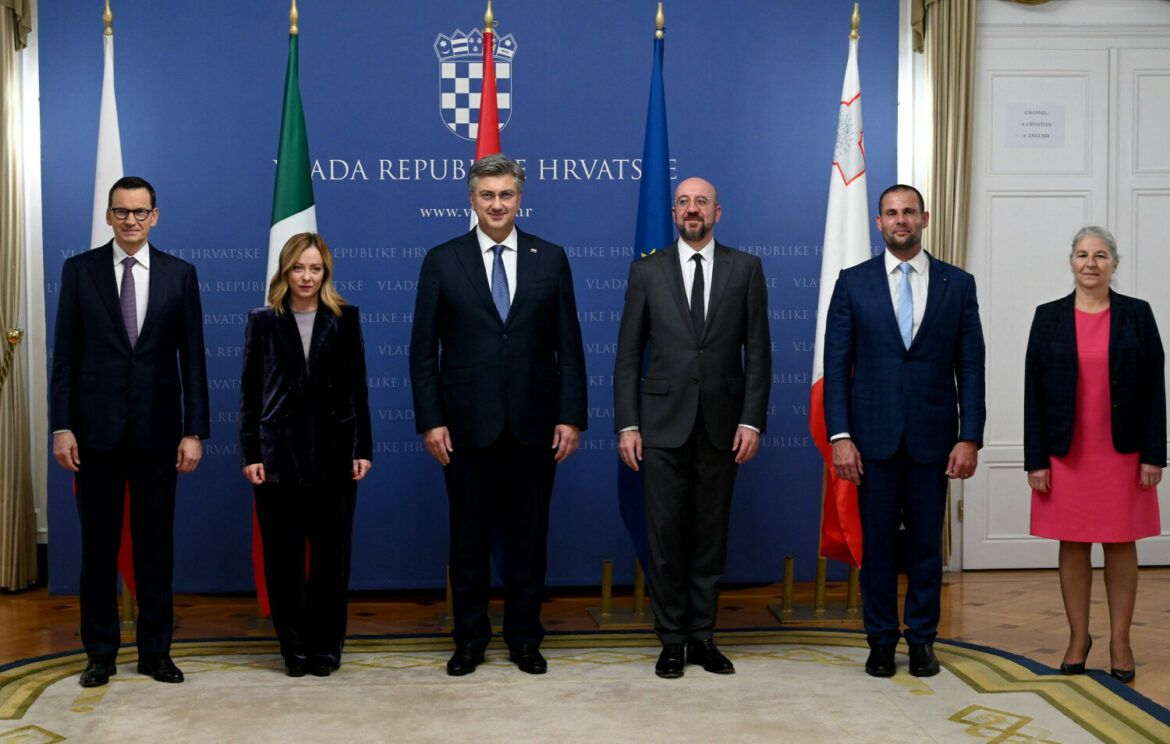“Wherever the interests of a Member State are at stake, it is the institutions of that State that should be at the forefront, fundamental in setting priorities. We are empowered by this idea that it is the member states that should take most decisions, on the principle of subsidiarity”, said Prime Minister Mateusz Morawiecki after an informal meeting of some European Union (EU) leaders in Zagreb.
The politicians’ discussions were part of the preparation of the EU’s Strategic Agenda. “Poland’s position is that European integration should take into account the sovereignty of nation states and should be based on the principles of working out compromises”, stressed the Prime Minister’s Office in a press release.
The EU’s strategic programme for 2024-2029 is developed by the leaders of the member states, who together discuss and agree on the directions and goals of the community’s political activities for the coming years.
“The European Union is at a crossroads”, said the head of the Polish government. “The discussion about the challenges of the European Union that are ahead of us is not only gaining momentum, but is also characterised today by several fundamental dilemmas: whether to move towards communitarisation with an increasing number of different regulations, issues concerning production, the economy, migration, internal affairs, foreign affairs, security, or rather to focus on those challenges that are most important and help each other”, added Prime Minister Mateusz Morawiecki.
As emphasised by the Prime Minister’s Office, the main changes, proposed as part of the treaty reform, include the elimination of the principle of unanimity, i.e. the possibility of a veto, in votes in the Council of the European Union and the transfer of many competences from the level of member states to the EU level. The changes are expected to significantly expand shared competences, which would include eight new areas: foreign and security policy, border protection, forestry, public health, civil defence, industry, and education.
Adrian Andrzejewski





